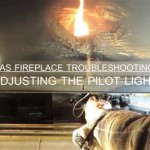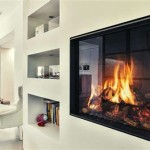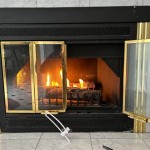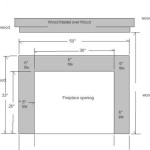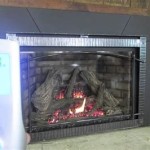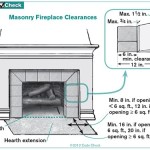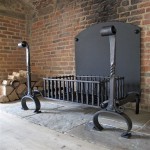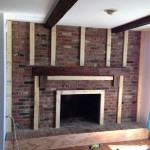Understanding Propane Fireplace Odors: Causes and Troubleshooting
Propane fireplaces offer a convenient and aesthetically pleasing way to heat a home. They provide the ambiance of a traditional wood-burning fireplace without the mess and effort. However, one common concern among propane fireplace owners is the occasional presence of an unusual odor. While a properly functioning propane fireplace should not emit a noticeable smell, various factors can contribute to unpleasant or potentially hazardous odors. Identifying the source of the smell is crucial for ensuring the safe and efficient operation of the appliance.
This article aims to provide a comprehensive overview of the potential causes of propane fireplace odors, offering insights into troubleshooting techniques and preventative measures. Understanding the nature of propane and its combustion process is fundamental to diagnosing and addressing odor-related issues. Furthermore, it is important to emphasize that any persistent or strong gas odor warrants immediate action, including contacting a qualified technician or the local fire department.
Propane's Unique Characteristics and Odorization
Pure propane is naturally odorless. To enable easy detection of leaks, propane suppliers add a chemical odorant called ethyl mercaptan (ethanethiol). This additive imparts a distinct rotten egg or sulfur-like smell to the gas. The concentration of ethyl mercaptan is carefully regulated to ensure it is detectable at concentrations well below the lower explosive limit (LEL) of propane. The LEL is the lowest concentration of a combustible substance in air that will support a flame. By adding this distinct smell, propane leaks can be identified before they reach a hazardous level.
The intensity of the odor may vary depending on several factors, including the concentration of propane in the air, the sensitivity of an individual's sense of smell, and the presence of other masking odors. Some individuals may be more sensitive to the odorant than others, and prolonged exposure to certain smells can lead to olfactory fatigue, making it more difficult to detect the propane odor. Maintaining a working carbon monoxide detector is also crucial, as carbon monoxide is an odorless, colorless gas produced by incomplete combustion.
Common Causes of Propane Fireplace Odors
Several factors can contribute to the presence of odors associated with a propane fireplace. These can range from simple operational issues to more serious problems that require professional attention. Proper diagnosis is essential for effective resolution.
One of the most frequent causes is a new fireplace being burned for the first time. The manufacturing process often leaves behind oils, dust, and other residues on the fireplace components. When the fireplace is initially used, these substances can burn off, producing a temporary odor that dissipates after a few hours of operation. Proper ventilation during the initial burn-in period can help minimize the intensity of the smell.
Another common cause of odors is dust accumulation. Dust particles can settle on the fireplace's burner, logs, and other internal components. When the fireplace is turned on, the heat causes the dust to burn, resulting in a musty or burning smell. Regular cleaning of the fireplace, including vacuuming or wiping down the components, can help prevent dust-related odors.
Spiders and other insects can sometimes find their way into the fireplace and build nests. When the fireplace is ignited, these nests and any trapped insects can burn, producing a distinct and unpleasant odor. Inspecting the fireplace regularly and removing any visible nests can help prevent this issue. Consider using insect repellent around the fireplace area to deter pests.
A minor gas leak, even if too small to be immediately dangerous, can also cause a noticeable propane odor. Leaks can occur at various points in the gas line, including connections, valves, and fittings. If a persistent propane odor is detected, even a faint one, it is essential to shut off the gas supply to the fireplace and contact a qualified technician immediately. Do not attempt to locate the leak yourself using a flame or other ignition source.
Incomplete combustion can also result in unpleasant odors. This occurs when the propane does not burn completely, producing byproducts such as carbon monoxide and other volatile organic compounds (VOCs). Incomplete combustion can be caused by a variety of factors, including a dirty burner, insufficient air supply, or improper gas pressure. A yellow or orange flame, rather than a clean blue flame, is often indicative of incomplete combustion. Ensuring proper ventilation and regular maintenance can help prevent this issue.
Additionally, foreign objects falling into the fireplace can also cause odors. Items such as paper, plastic, or other debris can ignite and produce a burning smell. It is important to keep the area around the fireplace clear of flammable materials and to ensure that nothing falls into the firebox.
Troubleshooting and Preventative Measures
When addressing propane fireplace odors, a systematic approach is essential to identify the cause and implement the appropriate solution. Start by assessing the characteristics of the odor and when it is most noticeable. Is it a faint propane smell, a burning smell, a musty smell, or something else? Does it occur only when the fireplace is first turned on, or does it persist throughout operation?
For a new fireplace, allow sufficient burn-in time. Open windows and doors to provide adequate ventilation during the initial few hours of operation. If the odor persists after the burn-in period, proceed to the next step.
Thoroughly clean the fireplace. Use a vacuum cleaner with a brush attachment to remove dust and debris from the burner, logs, and other internal components. Wipe down the surfaces with a damp cloth and mild detergent. Ensure that all components are completely dry before using the fireplace again.
Inspect the fireplace for any signs of insect nests or other infestations. Remove any visible nests and consider using insect repellent around the fireplace area. If the infestation is severe, it may be necessary to contact a pest control professional.
If a propane odor is suspected, perform a leak test using a soapy water solution. Mix a small amount of dish soap with water and apply the solution to all gas line connections, valves, and fittings. If bubbles form, it indicates a gas leak. Immediately shut off the gas supply and contact a qualified technician to repair the leak. Do not attempt to repair the leak yourself unless you are a trained professional.
Ensure proper ventilation by checking that the fireplace's air vents are not blocked. Insufficient air supply can lead to incomplete combustion and the production of odors. Adjust the air vents as needed to optimize combustion. Also, make sure the flue is properly opened if the fireplace has one. The purpose of a flue is to allow the harmful gases to escape and improve ventilation.
Schedule regular maintenance with a qualified technician. A technician can inspect the fireplace for any potential problems, clean the burner, check the gas pressure, and ensure that all components are functioning properly. Regular maintenance can help prevent odors and ensure the safe and efficient operation of the fireplace.
Consider the age and condition of the fireplace. Older fireplaces may be more prone to leaks and other problems. If the fireplace is nearing the end of its lifespan, it may be more cost-effective to replace it with a newer, more efficient model.
Finally, educate all household members about propane safety and the importance of reporting any unusual odors. Ensure that everyone knows how to shut off the gas supply to the fireplace and what to do in the event of a gas leak. Having a clear emergency plan can help prevent accidents and ensure the safety of everyone in the home.
By understanding the potential causes of propane fireplace odors and implementing appropriate troubleshooting and preventative measures, homeowners can maintain a safe and enjoyable heating experience. Remember that any persistent or strong gas odor warrants immediate attention from a qualified professional. Prioritizing safety and regular maintenance is crucial for ensuring the long-term performance and reliability of a propane fireplace.

Here S Why Your Gas Fireplace Stinks Full Service Chimney

Here S Why Your Gas Fireplace Stinks Full Service Chimney

Propane Fireplace Maintenance Premier Companies

Why Does My Gas Fireplace Smell Like Kerosene Hunker

Here S Why Your Gas Fireplace Stinks Full Service Chimney

Vent Free Fireplace Odor

Ventless Gas Fireplace Maintenance Guide Fireplaces Direct Learning Center

Why Your Gas Fireplace Stinks Chimney Experts

Vent Free Fireplace Odor

How To Make A Gas Fireplace More Like Wood Burning One Ehow
Related Posts

